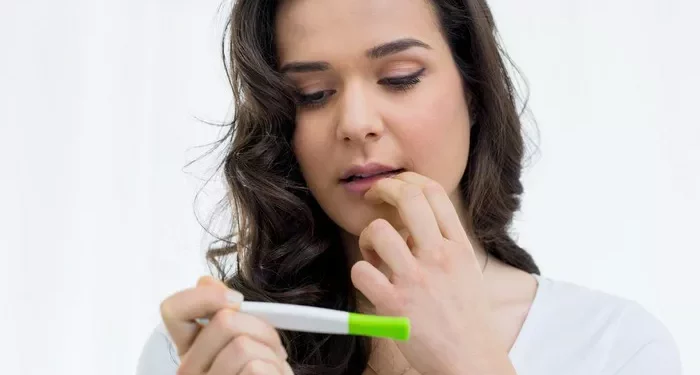Infertility is a complex issue affecting many individuals and couples worldwide. Various factors can contribute to fertility problems, ranging from medical conditions to lifestyle choices. One lesser-discussed topic is the potential impact of perfume on fertility. This article explores whether perfume can cause infertility, examining scientific evidence, potential mechanisms, and preventive measures.
Understanding Infertility
Infertility is defined as the inability to conceive after one year of regular, unprotected intercourse. It can affect both men and women and may result from a range of factors, including hormonal imbalances, structural issues, and environmental exposures.
Overview of Perfume Ingredients
Perfumes are composed of a mix of essential oils, alcohol, and various chemical compounds. The fragrance industry uses hundreds of ingredients to create scents. Some of these components are synthetic, while others are natural.
Common Ingredients in Perfumes
Fragrance Oils: These provide the primary scent of the perfume. They can be natural or synthetic.
Alcohol: Typically ethanol, alcohol acts as a carrier for the fragrance.
Fixatives: These are substances that help stabilize the fragrance and make it last longer. They can be synthetic or derived from natural sources.
Preservatives: These chemicals prevent microbial growth and extend the perfume’s shelf life.
Potential Impact of Perfume on Health
Certain ingredients in perfumes have been scrutinized for their potential health effects. Key concerns include:
- Endocrine Disruptors: Some chemicals in perfumes may act as endocrine disruptors. These substances can interfere with hormonal balance, potentially affecting reproductive health.
- Allergic Reactions: Some individuals may experience allergic reactions to perfume ingredients, which can have indirect effects on overall health.
- Toxicity: Certain synthetic compounds in perfumes could be toxic with prolonged exposure.
See Also: Can Vaginal Dryness in Women Lead to Infertility?
Endocrine Disruptors and Reproductive Health
Endocrine disruptors are chemicals that can interfere with the endocrine system, which regulates hormones in the body. This interference can potentially affect reproductive health.
What Are Endocrine Disruptors?
Endocrine disruptors are substances that can mimic or block hormones. They can interfere with hormone production, release, transport, metabolism, and elimination.
Mechanisms of Action
- Hormone Mimicry: Some chemicals can imitate natural hormones, leading to altered hormone signaling.
- Hormone Blockade: Other substances may block hormones from binding to their receptors, disrupting normal hormone function.
- Enzyme Inhibition: Certain chemicals may inhibit enzymes responsible for hormone metabolism, leading to hormonal imbalances.
Research on Endocrine Disruptors and Fertility
Research has shown that endocrine disruptors can impact fertility in both men and women. For example:
In Women: Disruptors can affect ovarian function, menstrual cycles, and overall reproductive health.
In Men: These substances can impact sperm production and quality.
Perfume Ingredients as Endocrine Disruptors
Several chemicals used in perfumes have been identified as potential endocrine disruptors:
- Phthalates: These are used as fixatives in many perfumes. Studies have shown that phthalates can interfere with hormonal functions and reproductive health.
- Synthetic Musks: These chemicals, used to enhance fragrance longevity, have been linked to hormone disruption.
- Parabens: Often used as preservatives, parabens can mimic estrogen and potentially impact reproductive health.
Scientific Evidence Linking Perfume to Infertility
To determine if perfume can cause infertility, it is crucial to examine the scientific evidence available.
Studies on Perfume and Hormonal Disruption
Some studies suggest a link between perfume ingredients and hormonal disruption:
Phthalates and Reproductive Health: Research has shown that phthalates can reduce fertility in both men and women.
Synthetic Musks and Endocrine Function: Studies indicate that synthetic musks can disrupt hormonal balance and potentially impact reproductive health.
Clinical Observations
Clinical observations often involve studying populations exposed to certain chemicals and monitoring their reproductive health. While these studies can provide insights, more research is needed to establish definitive links between perfume use and infertility.
Indirect Effects of Perfume on Fertility
Perfume might not directly cause infertility, but its use could have indirect effects on reproductive health:
Allergic Reactions: Severe allergic reactions to perfume could lead to health complications, which may indirectly affect fertility.
Chemical Exposure: Regular exposure to perfumes containing endocrine disruptors may contribute to overall chemical load in the body, potentially impacting reproductive health.
Preventive Measures and Recommendations
To mitigate potential risks, consider the following measures:
Choose Fragrance-Free Products
Opt for fragrance-free or naturally scented products. These alternatives are less likely to contain harmful chemicals that could impact reproductive health.
Check Ingredient Labels
Be aware of the ingredients in your personal care products. Avoid products with known endocrine disruptors, such as phthalates and synthetic musks.
Limit Exposure
Reduce your overall exposure to scented products, including perfumes, air fresheners, and cleaning products with fragrances.
Consult Healthcare Professionals
If you have concerns about the impact of perfumes or other chemicals on your health, consult a healthcare professional for personalized advice.
Conclusion
While the evidence linking perfume directly to infertility is not yet conclusive, certain ingredients in perfumes have been identified as potential endocrine disruptors. These chemicals can interfere with hormonal balance, which may affect reproductive health. To reduce potential risks, consider choosing fragrance-free products and being mindful of ingredient labels.
As research continues, it’s essential to stay informed and take preventive measures to protect your health and well-being.
Related Links:



























